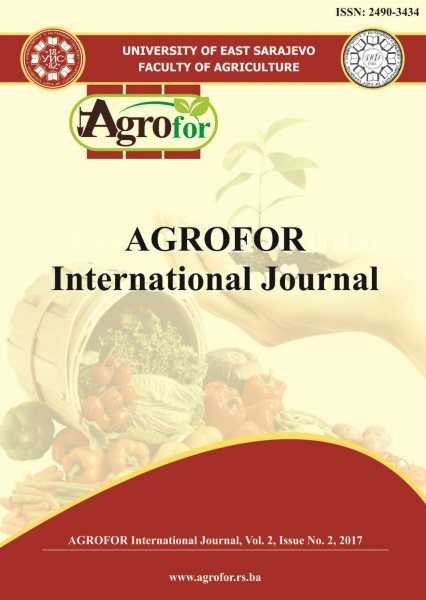COMPARISON OF WATERMARK SOIL MOISTURE CONTENT WITH SELYANINOV HYDROTHERMAL COEFFICIENT
DOI:
https://doi.org/10.7251/AGRENG1702106TAbstract
Agricultural producers to determine irrigation scheduling practices for crop‘s water
requirement better when the soil water content of their fields is known. Selyaninov
Hydrothermal Coefficient (HTC) coefficient is used for identifying droughts during
the active vegetation period, based on the water balance equation. For farmers to
make measurements of soil moisture is simply with humidity sensors, for example
Watermark type. Soil humidity values established using Watermark type humidity
sensors, value interpretations are based on manufacture indications, however they
have not been adapted to Lithuanian conditions. Soil moisture was measured with
Watermark soil moisture sensors placed at 20 and 50 cm depths. After analysing
the values taken throughout the whole period and summarizing the results it has
been identified that plant growth condition period evaluation according to HTC and
factual soil humidity reserves (W) differs by 20%. HTC meaning dependencies
during vegetation period using Watermark measured humidity, strong or averagely
strong interrelation is determinate, in most cases – statistically significant. When
evaluating soil humidity reserves based on soil texture, it is recommended to keep
the critical Watermark level in light texture soil (sands) at 80 cbar, and in all other
types of soil - at 150 cbar. The results clearly indicate that soil composition could
be factors limiting the success of identifying droughts in agriculture carried by
Watermark type humidity sensors.

